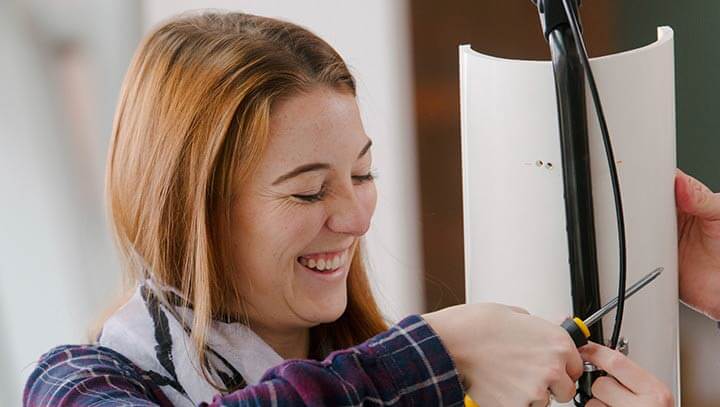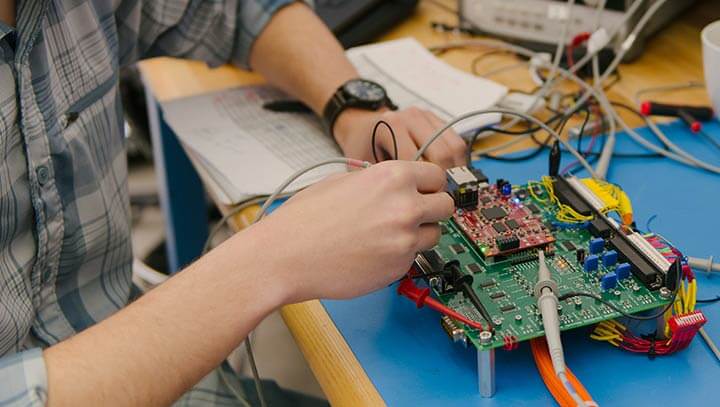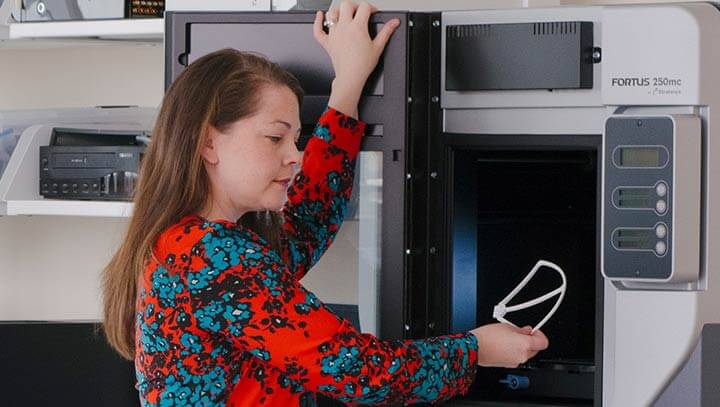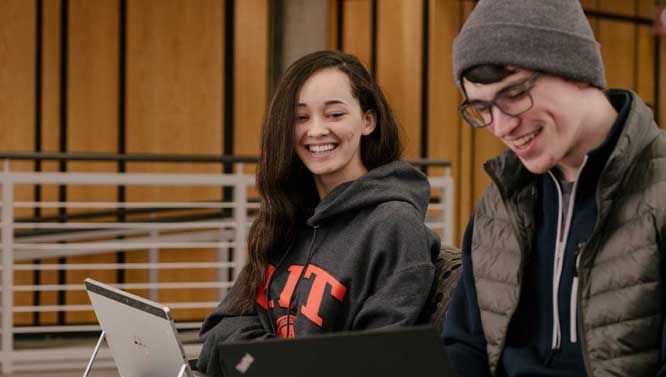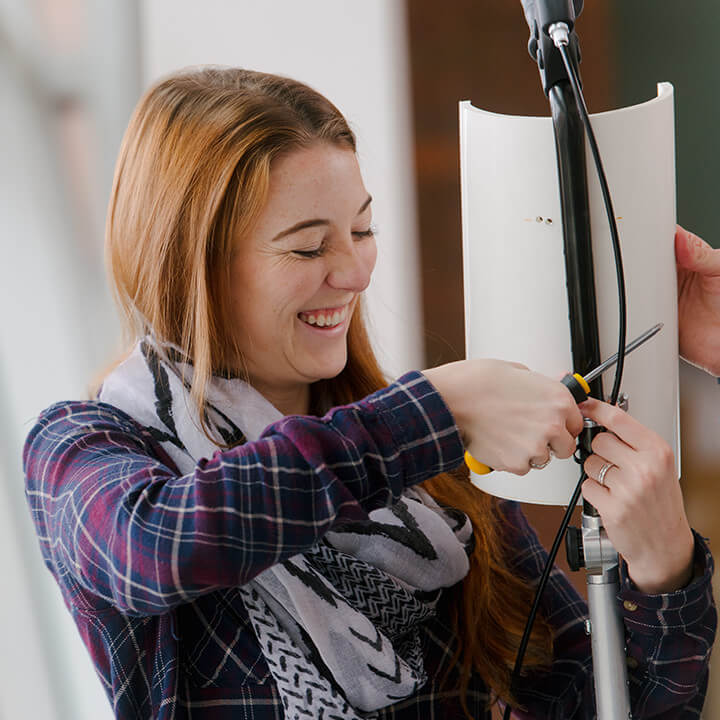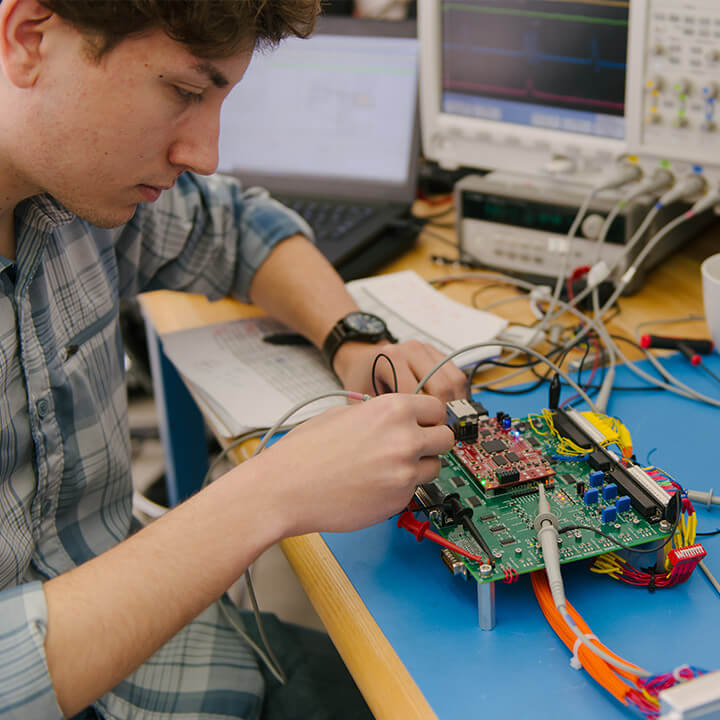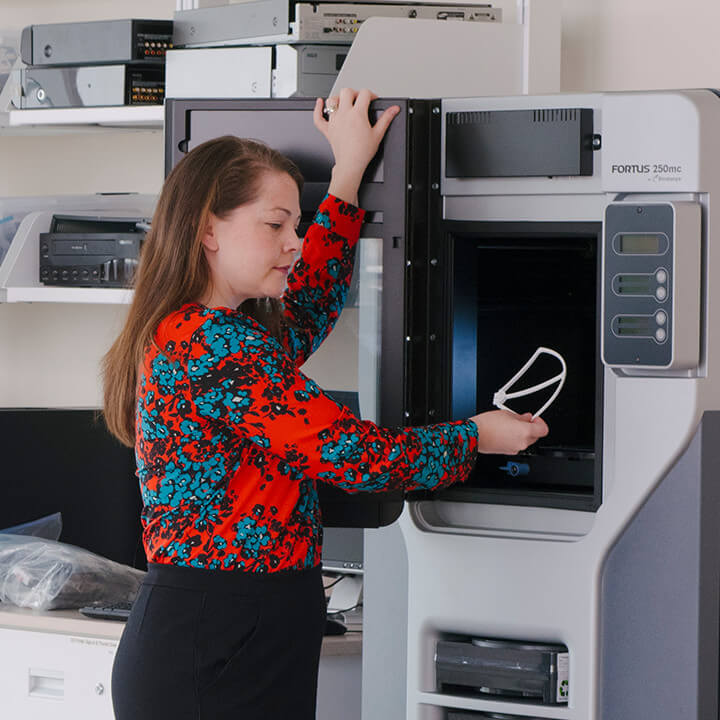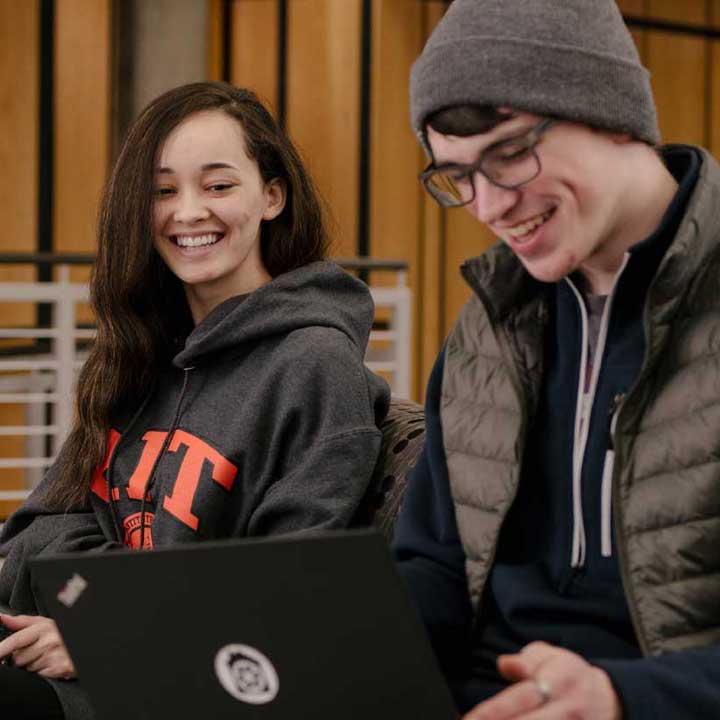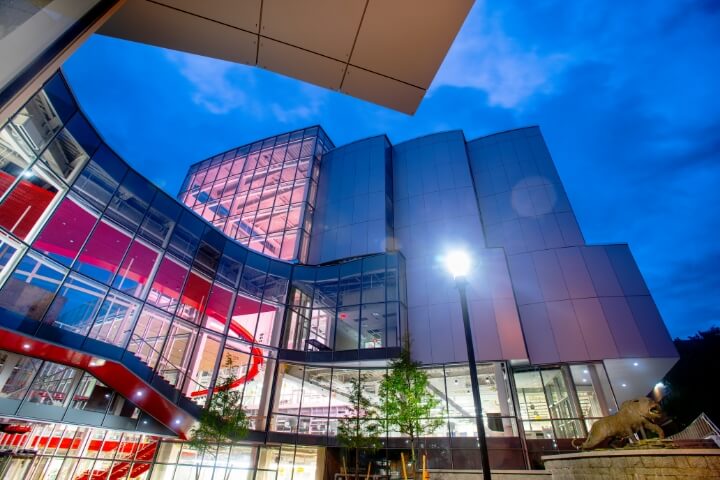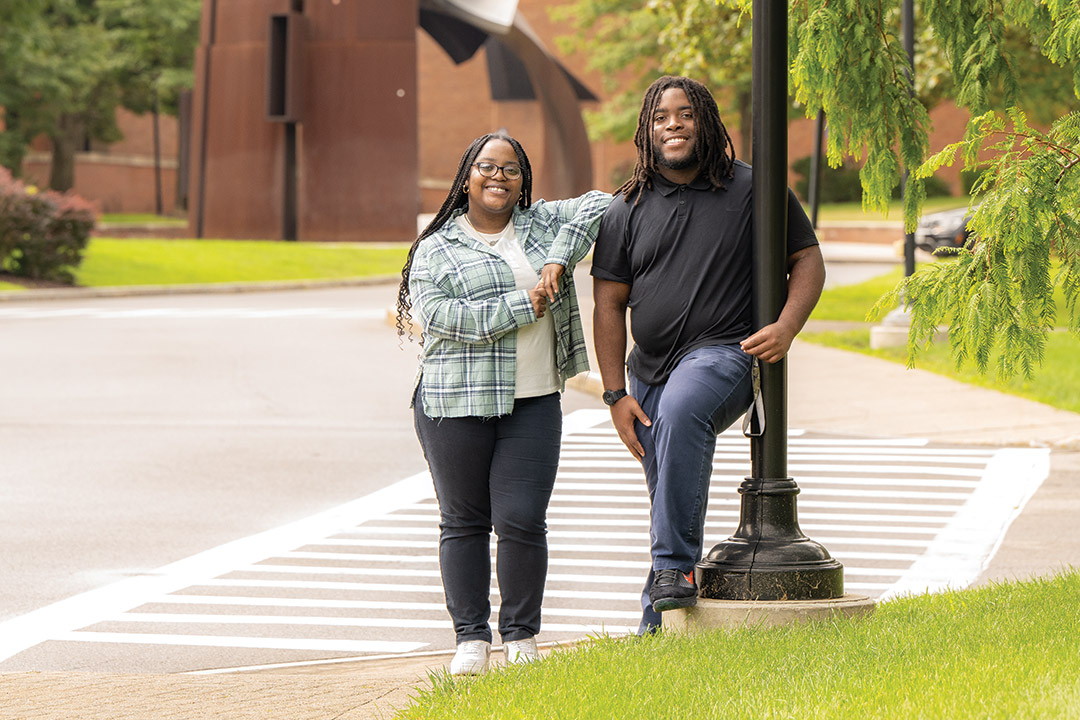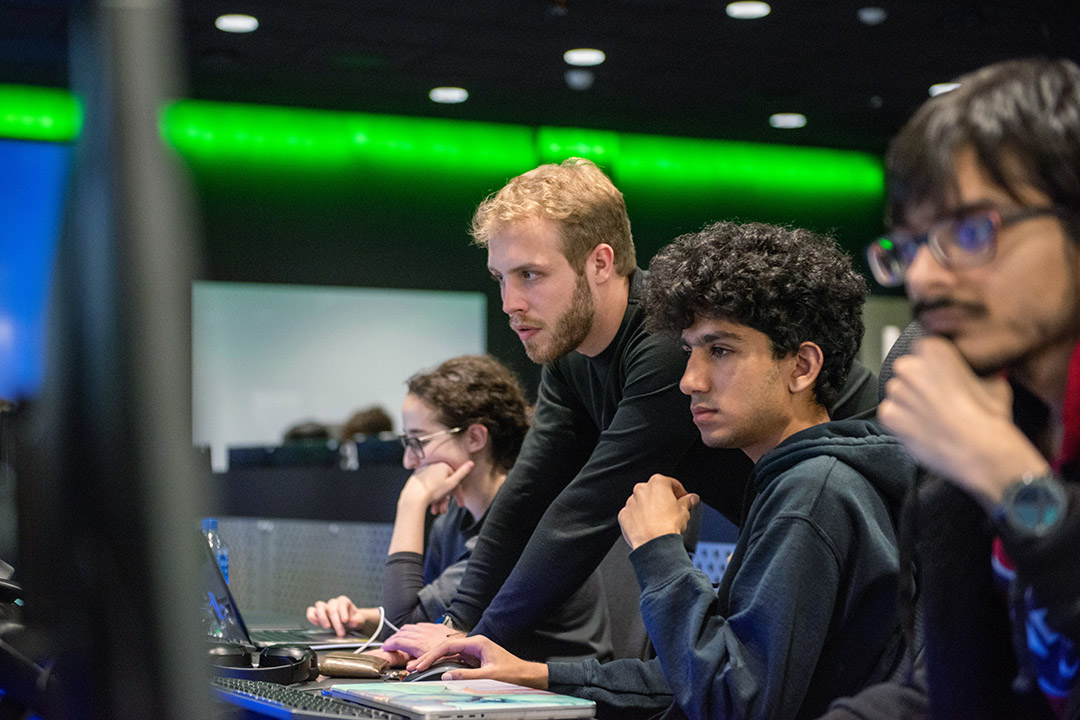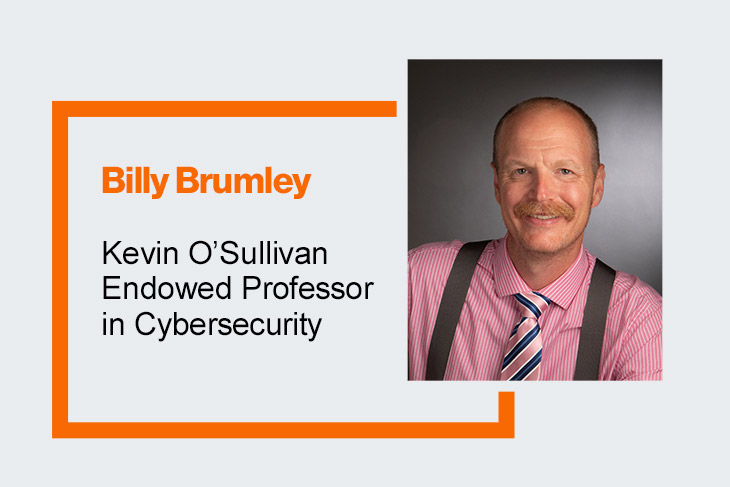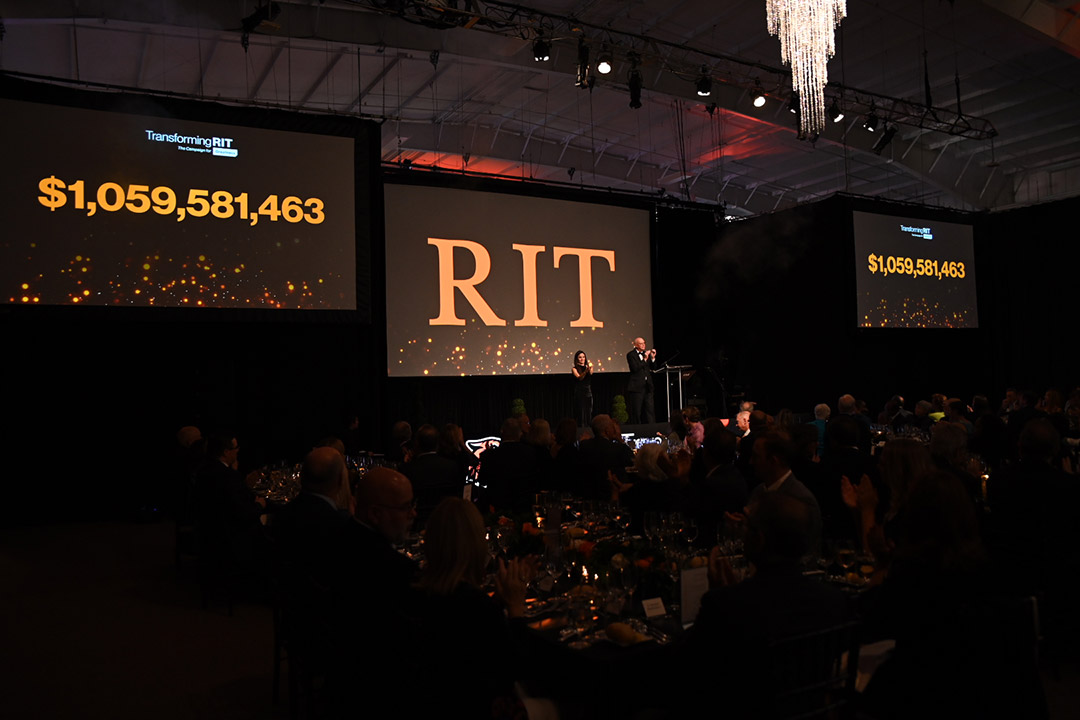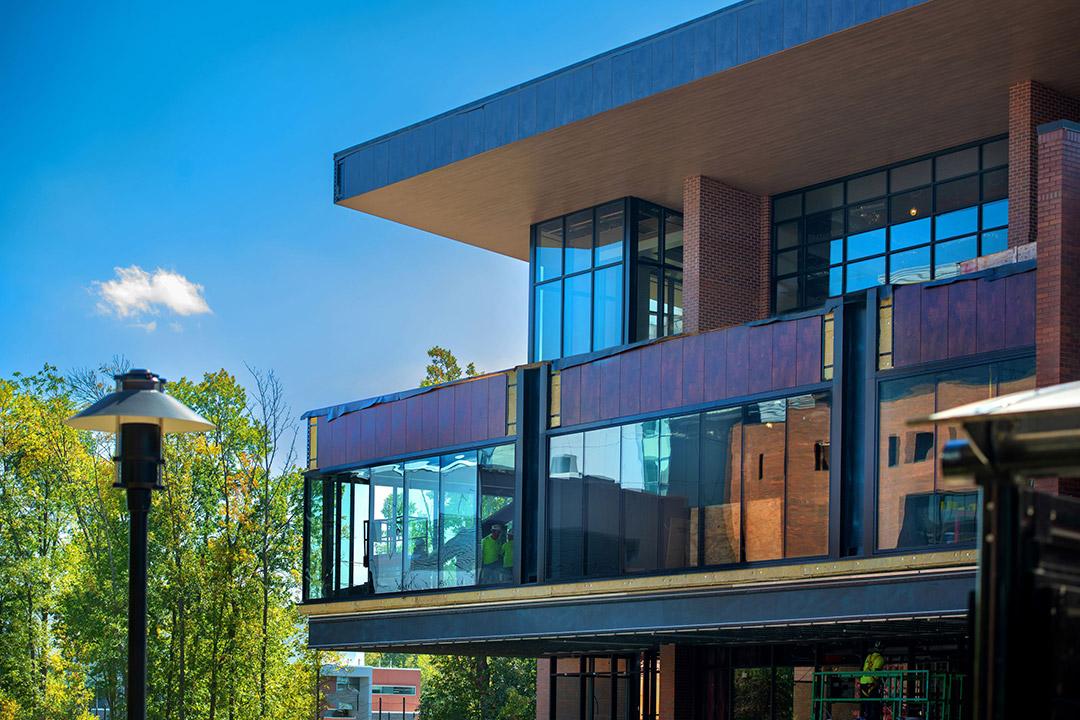SHED serves new generation of makers, performers, and active learners
Read More
Blended Campaign Success
We did it! We not only achieved our $1 billion goal, we well exceeded it raising a staggering $1,059,581,463 to transform RIT. From scholarships to professorships, academic programs to state-of-the-art facilities, and from groundbreaking research to mind-blowing innovations, the campaign garnered support from a diverse array of investors including passionate alumni, devoted parents, steadfast friends, as well as government and corporate partners, research foundations, and agencies. Thank you for your generosity. Because of our donors and supporters, RIT will always be onto something truly amazing.
$1B
of $1Billion GoalUNIQUELY RIT:
A Blended Campaign
Transforming RIT: The Campaign for Greatness is a different kind of campaign. It is blended because it seeks support from a multitude of investors—from our proud alumni, parents and friends—to our government and corporate partners, research foundations and agencies. In a blended campaign, investments to one initiative leverage additional contributions in related areas, so corporate, government, and private dollars work together to achieve our shared goals to greatness.
Read MoreOur Campaign Priorities
Pillar 1
Attract Exceptional Talent
RIT is a diverse community of extraordinary individuals. We will continue to add top-notch students and ask premier faculty to join us, enabling everyone here to make their wildest dreams real.
Pillar 2
Enhance the Student Experience
The creative energies of our students are not always contained within traditional academic structures, so we will increase the number of ways they can exercise their curiosity and innovative spirit.
Pillar 3
Improve the World through Research and Discovery
Building upon RIT’s existing signature strengths, we will develop a uniquely focused interdisciplinary research portfolio and create the spaces necessary to bring it to life.
Pillar 4
Lead Future Special Initiatives
Using the momentum gained from all we have done—and are currently achieving—we will devise a long-term strategy to keep RIT at the forefront of creativity and innovation.
Newsfeed
What’s happening with our campaign.
Transformative Campaign propels university to new heights
Read MoreStudents find community through RITSEC cybersecurity club
Read MoreBilly Brumley named new Endowed Professor in Cybersecurity
Read MoreGala marks successful conclusion of Transforming RIT: The Campaign for Greatness
Read MoreSaunders College of Business nears completion of massive building project
Read More